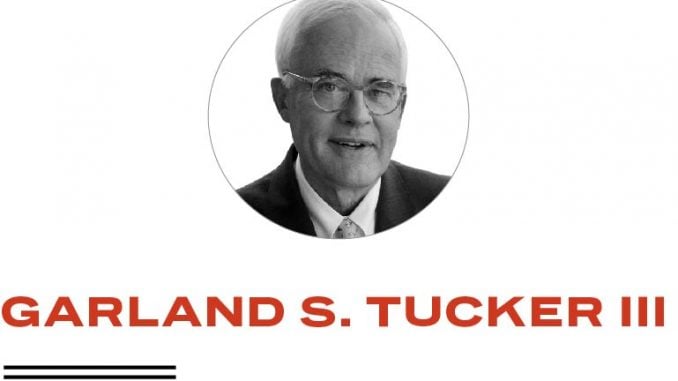
Along with illegal immigration, runaway government spending is a very real national emergency. The federal debt has soared from $16 trillion to $22 trillion in the past five years. It took us more than 200 years to incur a $16 trillion national debt; but a profligate Congress, careening out of control, has voted to increase that debt 37.5% in the past five years.
Intuitively, Americans know this mountain of debt has real consequences. Deep down, we understand, as Ben Stein says, “If something can’t go on forever, it will stop.” Inevitably there will be a day of reckoning. If we don’t reduce government spending now, the U.S. will face the inevitable and painful consequences. History is littered with the sad tales of countries — most recently Greece — that failed to keep their economic house in order. Yet Congress refuses to cut spending.
Why? One answer is Washington politics and finger-to-the-wind politicians, who lack the backbone to say, “No.”
Since the onset of the Great Society’s War on Poverty in the mid-’60s, the U.S. has spent — liberals would say “invested” — trillions of dollars on welfare programs. We were told these programs would not only eliminate poverty but eradicate the root causes of poverty. The results? The overall poverty rate in 1966 stood at 14.7%, while in 2013 it stood at 14.5% — virtually unchanged.
What a disastrous “investment.”
Washington politicians massively redistributed income and, because their spending was financed with deficits, shifted the repayment burden to future generations — all with no reduction in poverty. As former U.S. budget director and Indiana Gov.Mitch Daniels has written, “As a people, we have discovered the ability to vote ourselves largesse from the federal treasury in such vast quantities that we are destroying our own chances at prosperity.”
To use Arthur Brooks’ words, the politicians have created “a nation of takers — not makers.”
We have been too often willing to trade our reliance on free markets and individual freedom for government entitlements. As Brooks rightly concludes, “It is the greatest moral scandal of our time.” The legacy of big government is far worse than exploding debt, it has meant the loss of individual freedom.
J.D. Vance, in his blockbuster best-selling book, “Hillbilly Elegy,” poignantly portrays how millions of Rust Belt Americans have been shorn of their natural resilience and productivity and become trapped in a life of pessimism, hopelessness and despair — thanks to the devastating effects of well-intentioned government programs.
Many years ago, President Calvin Coolidge correctly discerned the moral dimension of this type of government policy when he spoke these words: “I am for economy in government not to save money, but to save people.”
Conservatives have been far too timid in fighting for limited government. At any mention of cutting government spending, liberals rage about lack of compassion, accusing conservatives of immorality. It’s time for conservatives to answer with two questions: What’s compassionate about transferring a $22 trillion debt to our grandchildren? And what’s moral about fostering debilitating dependency upon government handouts?
One need look back no further than the 1970s. After years of steady centralization and expanding government welfare programs, the U.S. and the U.K. teetered on the edge of chaos and economic decline. Two leaders, Ronald Reagan and Margaret Thatcher, refuted the inevitability of this slide into socialism and ushered in a rebirth of confidence in lower taxes, free markets, individual initiative and limited government.
As Claire Berlinski has written, Reagan and Thatcher delivered “a very particular message about socialism. It was not only that socialism was an economically inefficient way to organize human societies. It was that socialism itself was morally corrupting. Socialism turned good citizens into bad ones; it turned strong nations into weak ones; it promoted vice and discouraged virtue; and it transformed formerly hardworking and self-reliant men and women into whining, weak, and flabby loafers.”
With the Democratic Party now calling for another massive expansion of the failed state and flirting with outright socialism, we need to be reminded of Thatcher’s stern warning, “In the end, the real case against socialism is not its economic inefficiency, though on all sides there is evidence of that. Much more fundamental is its basic immorality.”
Garland S. Tucker III is a Raleigh business executive, historian and author. His latest book is “Conservative Heroes: Fourteen Leaders Who Shaped America, from Jefferson to Reagan.” He is a candidate for U.S. Senate in the North Carolina 2020 Republican primary.



